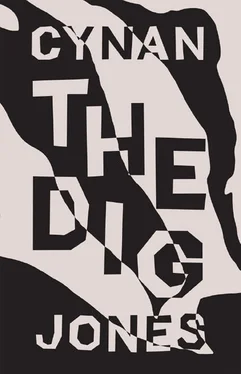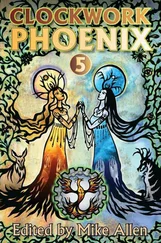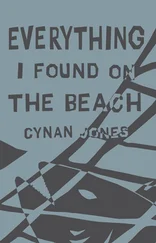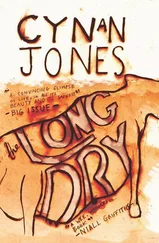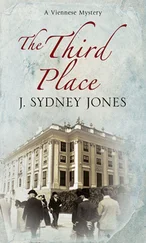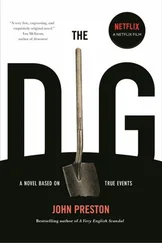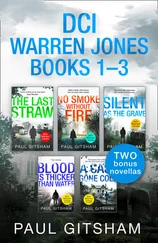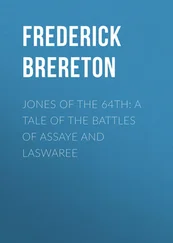We’re after foxes, said the man. Clear? And the men nodded.
In the light the tools looked as if they were made of stone.
•
They walked down through the big man’s land with the dogs and the tools, through the cemetery of machines.
The bigger man was an enthusiast of old cars and felt galled at the things he saw there, the Rover P6, the Triumph recognized only by its bones as if he was some adept mechanical archaeologist.
The men made no effort to cover their noise and as they passed the hedge they threw up the blackbirds that had sheltered here through the night and heard them batter into the remaining darkness with their laser-like call.
Messie went ahead and worked the bank but the other dogs were on leads, the lurchers livid with strain at the rabbits that went bumping away quickly from their torchlight. Here and there in the field were spent balloons of earthballs, their spores choked from them, like papery fruit.
They dropped down to a copse and went over the fence that marked the edge of his land, heard the small breeze amplify in the hazel around them. There was no true need for the torches but the townsmen were not used to such darkness nor this level of quietness and they were not restful in it.
•
When they came out of the copse the big man told them to turn off the torches and for moments they were blind. Then shapes came out, like shapes on a wax rubbing as their eyes adjusted.
There was a low open field to cross.
Are they broken to stock? asked the man.
Both the men nodded.
We can’t have them going for the stock.
The men looked into the field and eventually made out the strange bulks of cattle. The men were nervous at the cattle. They were neither used to big animals.
Farm buildings were beyond the field and the lights from the house looked to be guttering through the naked trees that were before it.
They went over the fence and followed the hedge line out of the field and went away on to the upper fields and out onto a road. Then they cut off the road on to a bridle path. There were houses in sight and they did not use the torches and slipped and cursed on the path, following mostly the pull of the dogs. The bigger man was heaving and panting and his asthma was getting up. Every now and then you could hear the hiss of him as he used the inhaler and it looked childlike, a big man like that using such a small thing. It made him look like a simpleton.
There was a luminous blue light come now and they stopped awhile and looked out over the valley, the strange puffs of sheep coming visible, the whitewashed farmhouses with their twinkling windows quartz-like in the flat gray land.
Some birds were now up, and strangely in that light a group of gulls went ghostly off toward the beach, as if fleeing the coming light. You could not see the sea from here, but there was the sense of it.
They looked out across the feminine curves of the hills and the man told them where they would go. Then they cut along the church wall, the dogs sniffing at the magpie-lifted ribbons and plastic flowers that had come over from the graveyard, and they went over the fence and into the sloping field.
The big man knew that up here they could not be seen from the farm.
Those are the woods, he said. He pointed. There was the dark mass, like hair on a body, straight before them. We’ll work our way about to it, he said. The farm is just down there. They could hear the muffled sounds from the barn.
The lurchers were stiff at the sheep, and the ewes brayed and stamped the ground.
It’s not easy land, he said. There’s some boggy stuff to work through. He was thinking of the man with the asthma, not with concern but with a sort of despisement.
The terriers were stiff and shaking already with excitement.
Take the gun out, he said. Give me the dogs.
The bigger man unsheathed the gun and broke it and held it in his arm and the other big man took the dogs.
Now, he said. Go.
The men worked their way across the fields, staying well up on the hedge lines out of eyesight from the farm. They came in to the pond field from the side and hurried the exposed few yards into the woods. The settled ducks set to chucking and gawping on the water but they did not lift into the unpredictable light.
Once inside the woods, the big man knew it was safe to use the torches carefully again.
Keep them to the ground, he said. If you shine them up he’ll see them.

The owl cut low against the bracken and its wings tilted and it stretched out its furred legs in a way that was somehow catlike and landed on the post and its white also was the very clean white of a cat that has white to it. Then it saw Daniel, and went off over the scrub, leaving the strange white silent thing of itself, like snow can.
He had been unable to sleep. He had come to believe that things had gone wrong because of the shard. That its removal had somehow upset a balance.
He had lain thinking of the vertebral spike of the malformed lamb, and that had brought him to this thought.
He stood over the shard. He had given it animation and it still had some presence to him but it was like a dead animal there.
He stood in the field. There was severity, a strange squareness. The cuts of hazel still stood out.
The ground was beginning to burst with growth now. The thin spears of grass looked fabricated, too fine and too green against the clay. Every here and there came a compact nettle. There was a part light. In the places where the water still stood the ground hissed, but much of the rain had run off into the new blatant ditches.
He went to the near fire pile and kicked a little at the crust of ash. It had turned a gray pink now, still with a white powder from the passing of great heat.
He dragged the long branch from the pile and walked from the fire until it was free and then weighed on it so it snapped where the flames had burnt and thinned it. There was a burst of charcoal, a blackbird, a sudden quick call in the quiet.
Daniel kicked at the burnt end he had formed and rolled it to make the hard point of a thick spear. Then he went to the cut that the shard had come from. The earth had hardened with time, healed somehow. It was a scar.
He used the pole spade-like to push back in some earth and kicked and scuffed at the bent lip of soil. Again he thought: Why do I not bring the things I need with me? As she would have done. He thought of the owl. It had been around more now. He could not separate it from her.
With the empty tub of a discarded salt lick he went back and forth from the fireplaces and filled the hole with wet ash and again kicked at the soil and mud. Then he used the pole like a spike and began to remake the hole. A cold sweat started on him, as if there was a coldness even to his energy now, no extra heat.
•
For a few feet or so it skidded on the wet ground but then the shard bit and he raised it up. He felt the familiarity of it, under his hands.
He found hold and walked it patiently to the hole, lifting it and dropping it, lifting it and dropping it. Then he bear-hugged the shard, and with all the strength he had raised it and let it go. It planted itself with its own weight.
He stood and looked once briefly for the owl, believing somehow it might be there.
For a moment he believed he heard voices, but he dismissed it.
He looked at the shard. It was taller than him, this way.
I’ll bring the tractor, he thought, knock it in with the front loader. He felt he must restore something.
Then he saw for the first time the marks in the iron, a strange part-familiar lettering, a strange ogham there below where it would have been in the ground.
Читать дальше
